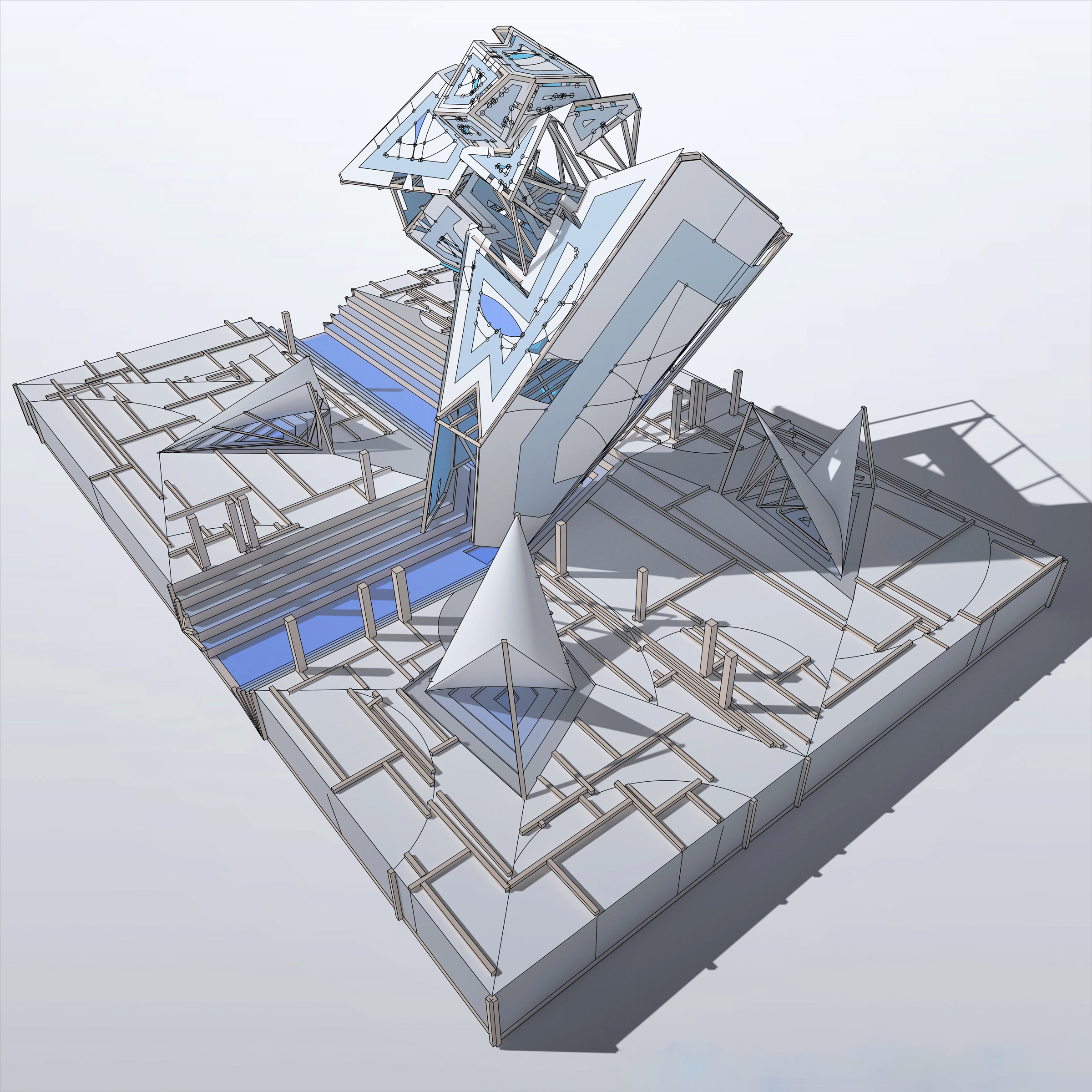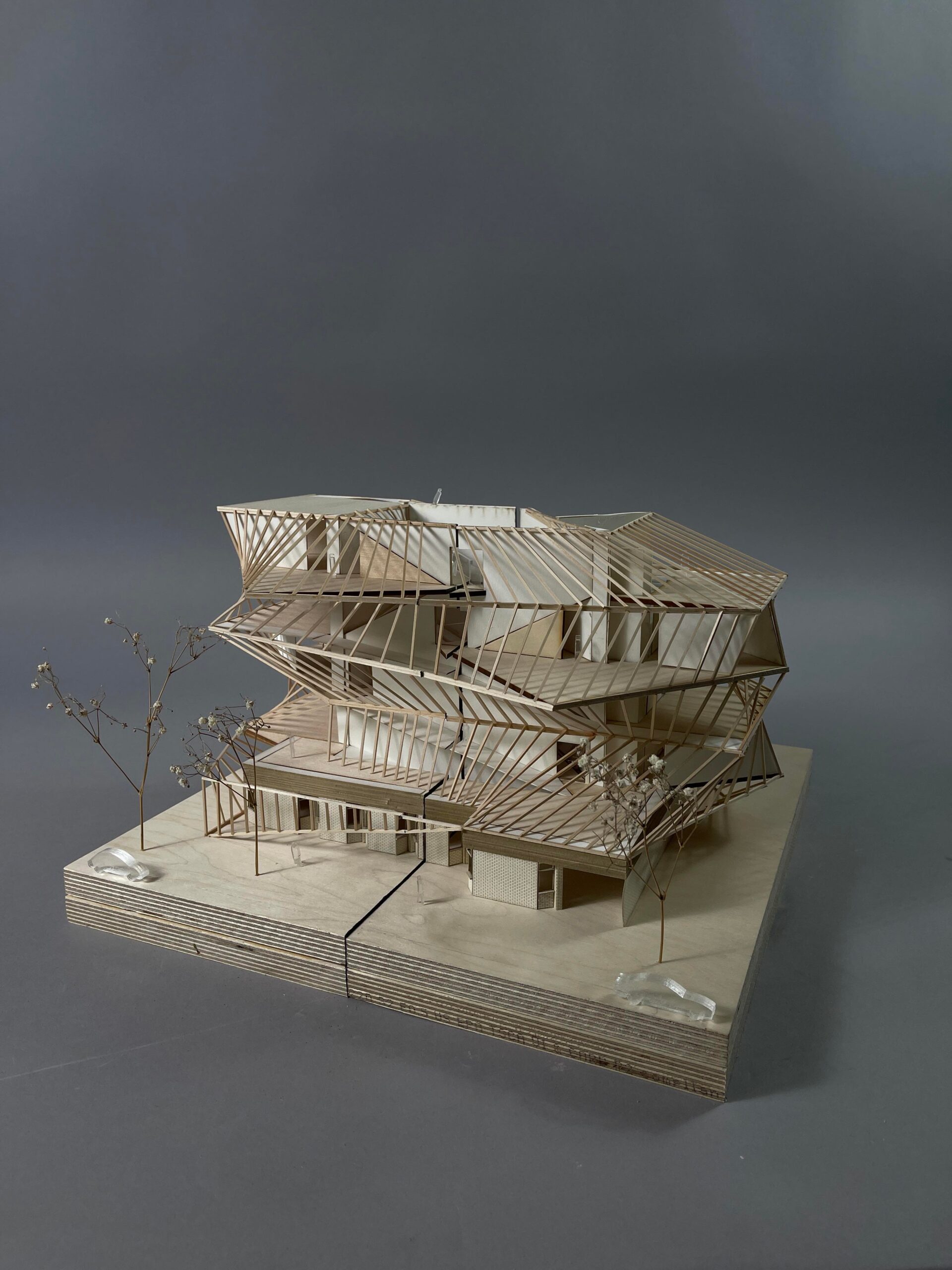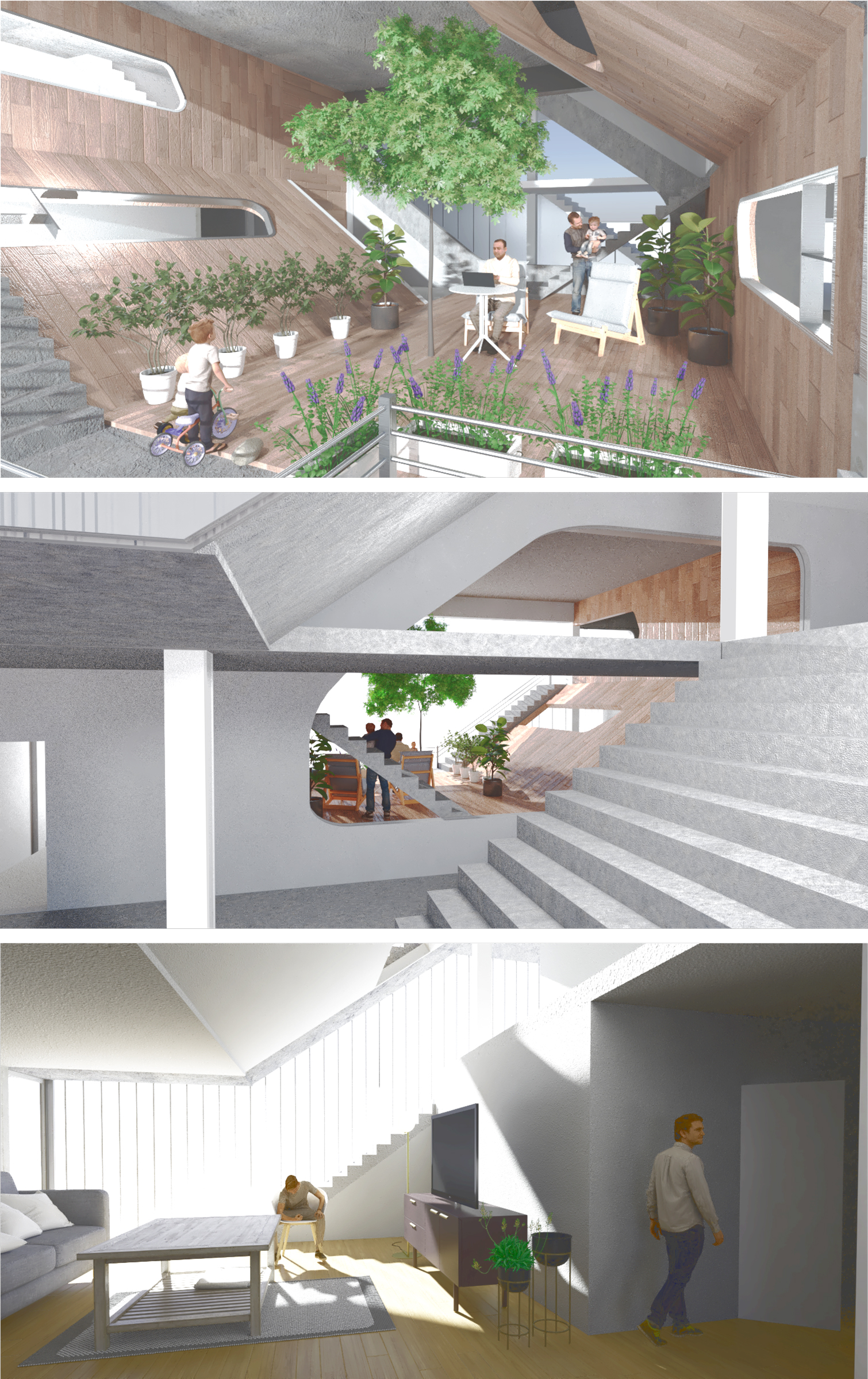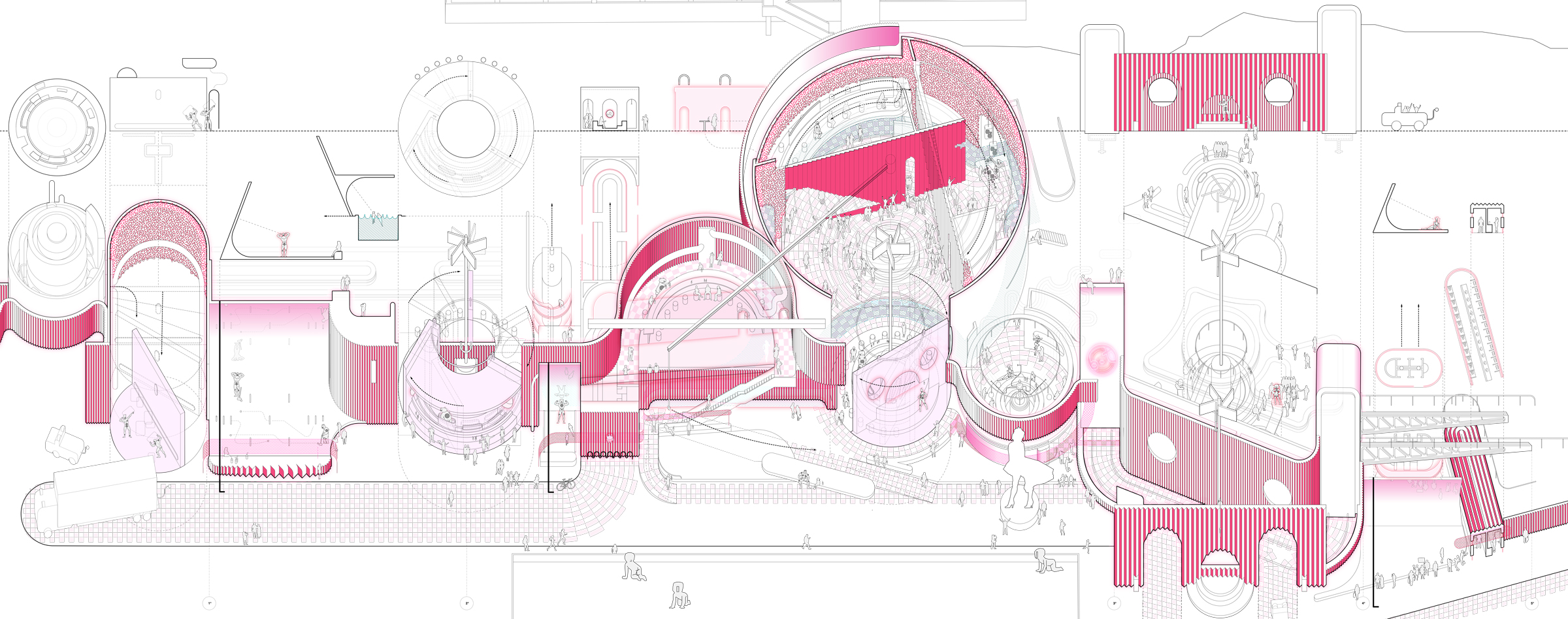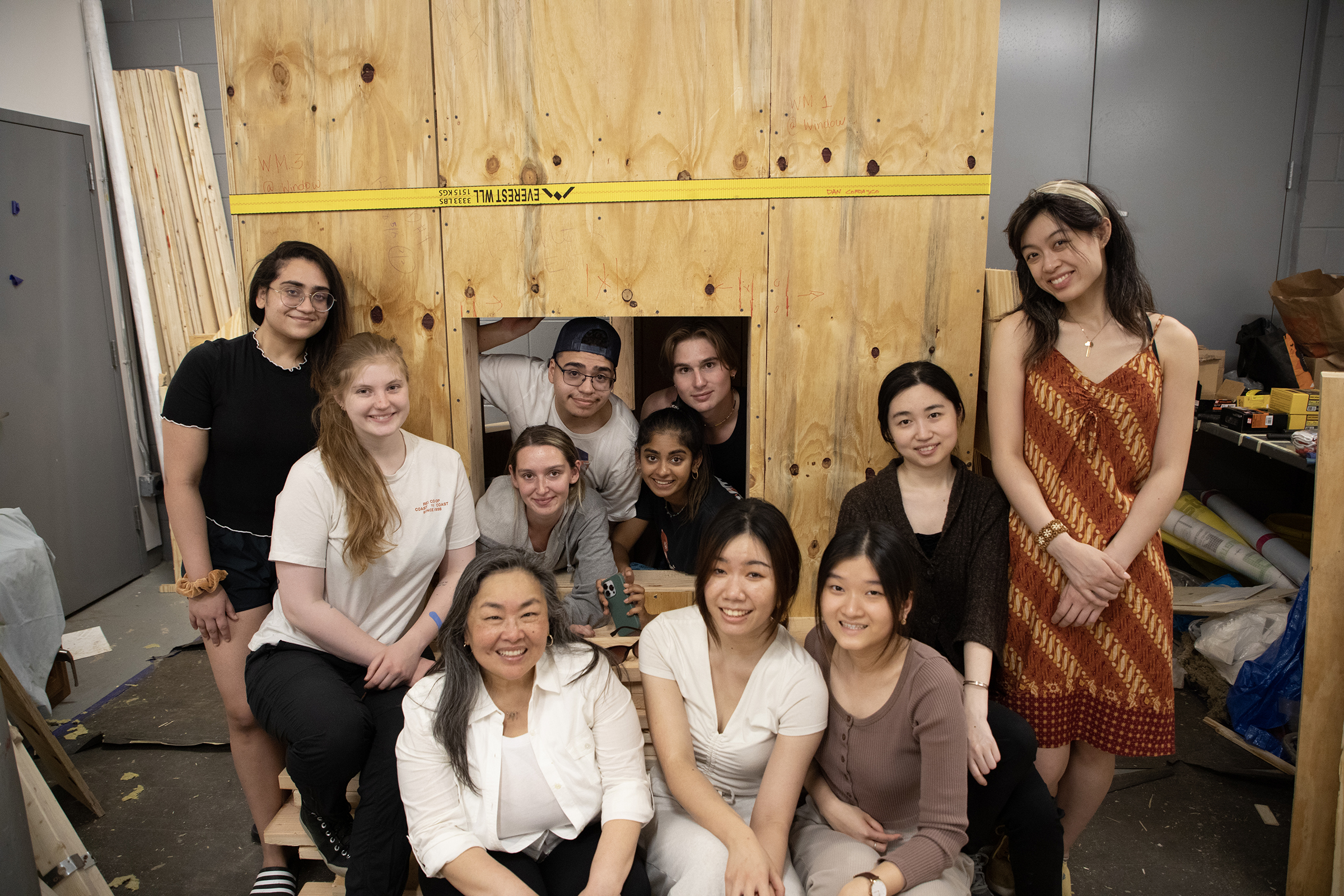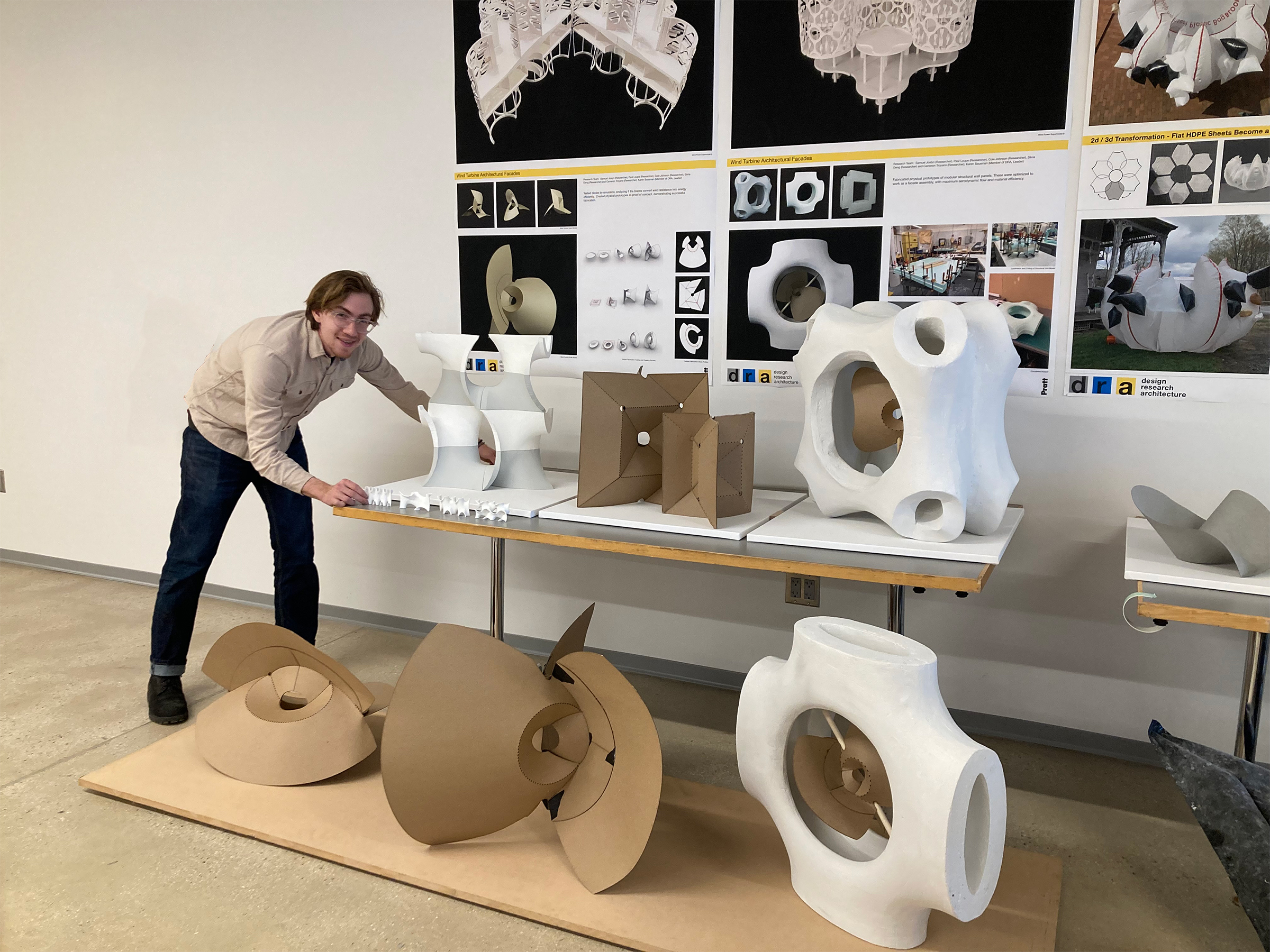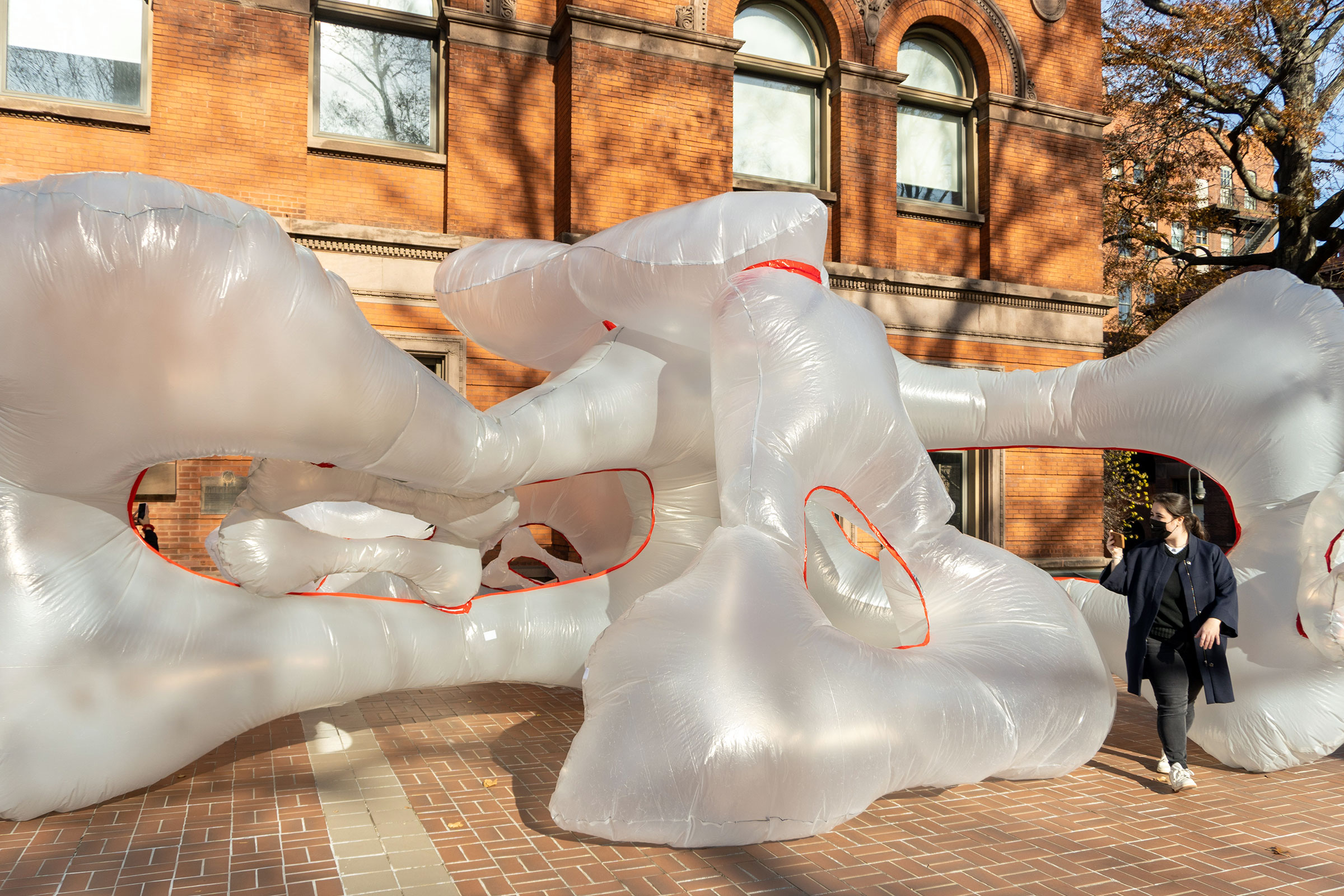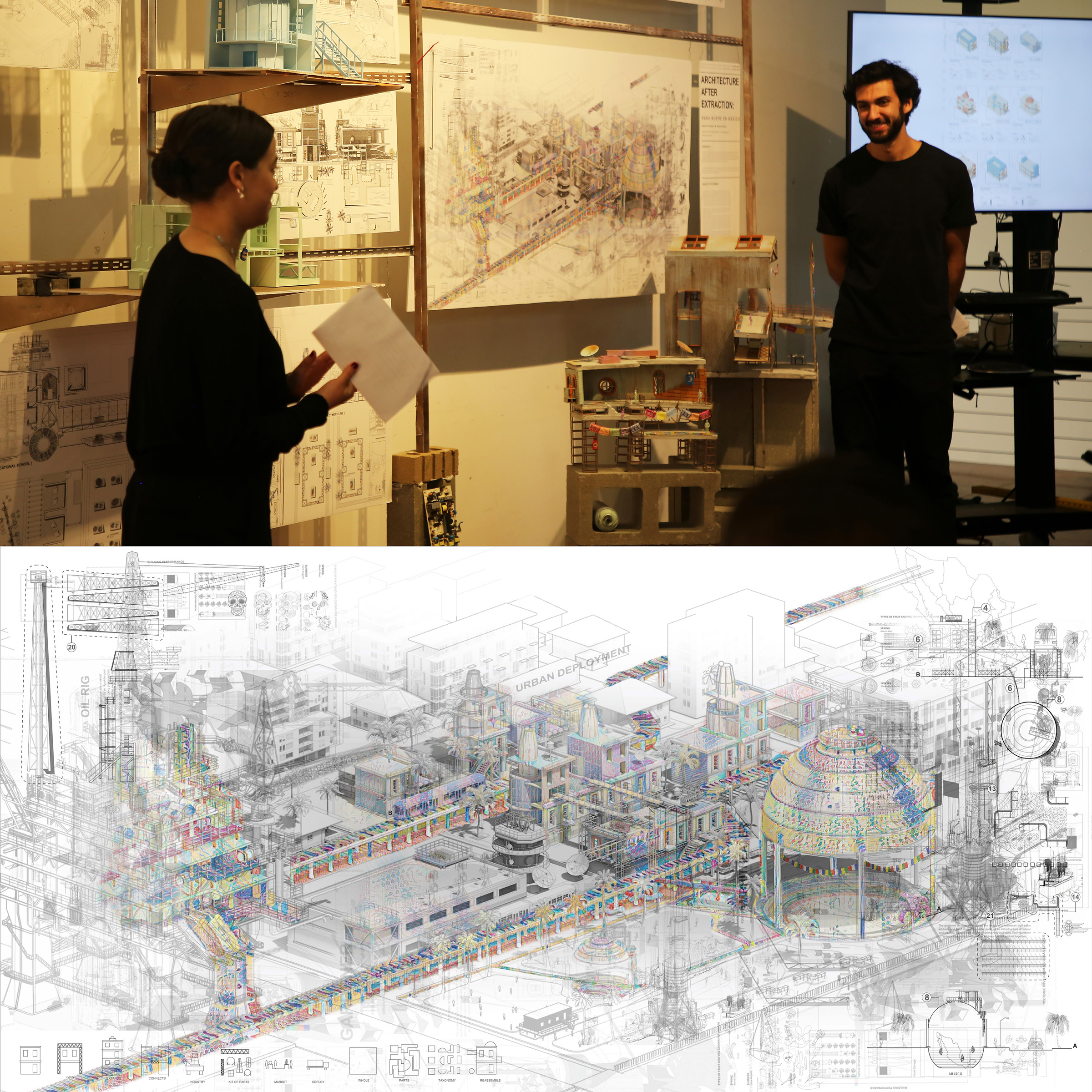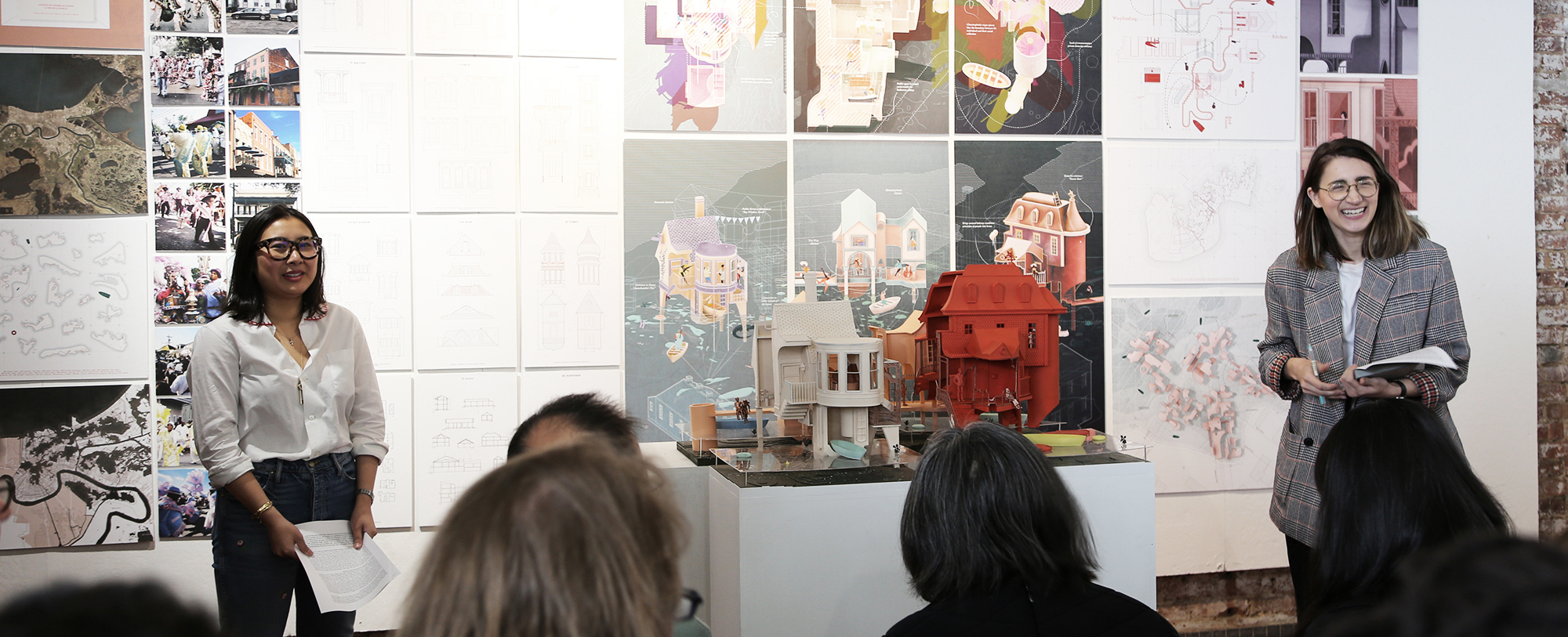
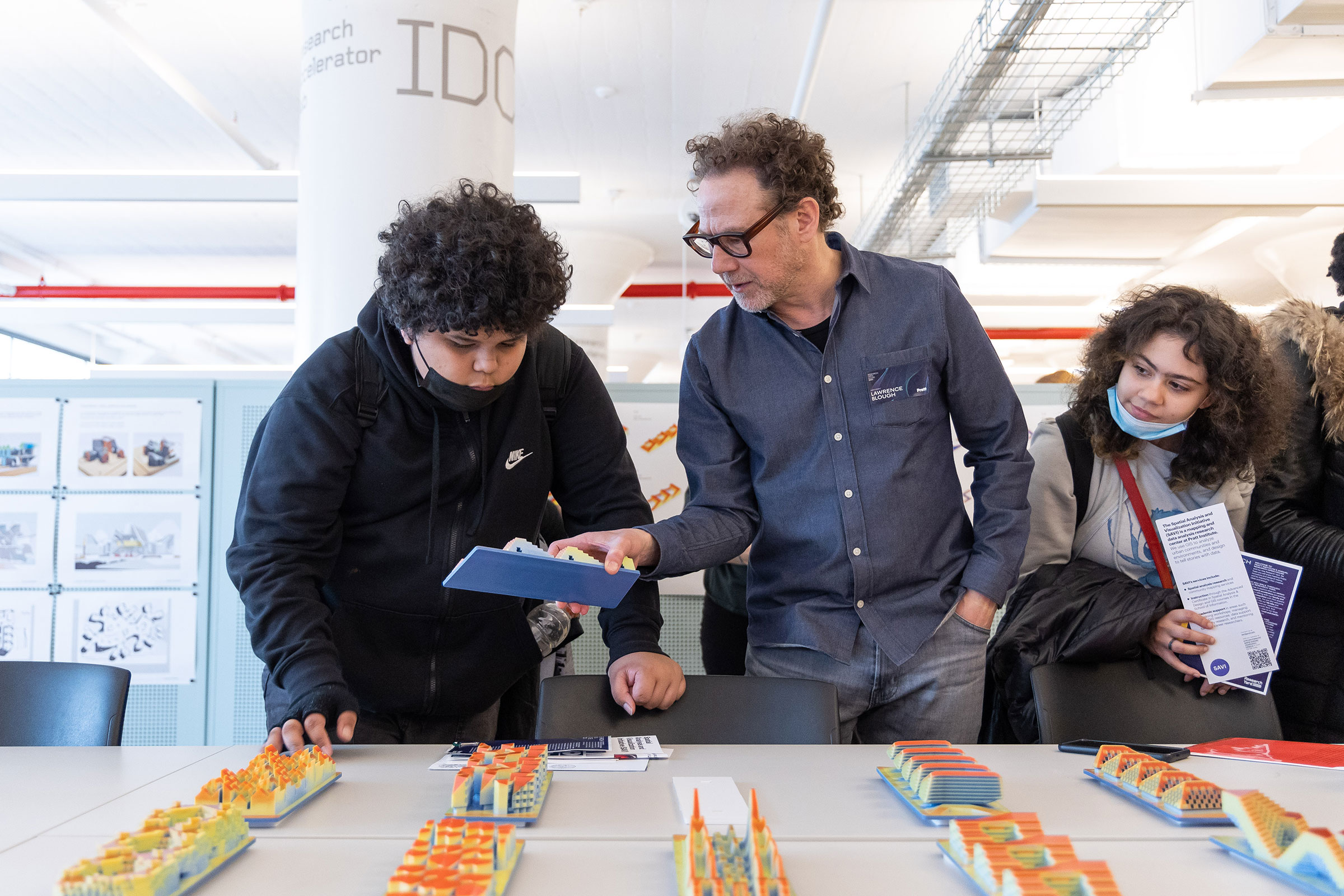
Architecture at Pratt
Program Ethos
Design Excellence
Pratt Undergraduate Architecture students transform design ideas into architectural proposals towards a more resilient and sustainable built environment, by incorporating skills developed from core to advanced design.
Social & Cultural Thinking
Pratt Undergraduate Architecture students acknowledge that architectural discourse contributes meaningfully to culture and critical thought through research and design, while embodying an ethos of equity and inclusion within a larger social, geographic, ecological, and ethical framework. Pratt Undergraduate Architecture students are immersed in diverse learning environments with respect to both content and community.
Technology & Innovation
Pratt Undergraduate Architecture students critically engage emerging technologies in representation, fabrication, and building science, to advance innovations in research and practice, with the goal of promoting continuous disciplinary progress towards a more ethical and sustainable future.
Urbanism
Pratt Undergraduate Architecture students, as residents of Brooklyn, New York, draw from the urban context, discourse, and culture that defines the city and shapes the pedagogy of the program. Pratt Undergraduate Architecture students integrate research in multimodal, multi-scalar approaches to inclusive and sustainable design with an awareness of their work’s impact on the urban environment.
Critical Thinking
Pratt Undergraduate Architecture students employ creative and intellectual agility to applied architectural research with a thorough understanding of the discipline’s body of knowledge, histories, theories, and role in shaping culture, society, and the environment.
Professional Leadership
Pratt Undergraduate Architecture students practice the ethical application of aesthetic judgment and technical expertise, through the process of collaboration and the integration of theory with practice. Pratt Undergraduate Architecture students lead in ensuring that the profession is more responsive and responsible to the communities it serves.
Student Work
Take a look at examples of work by Undergraduate Architecture students and alumni, and imagine what you might be able to do!
The Experience
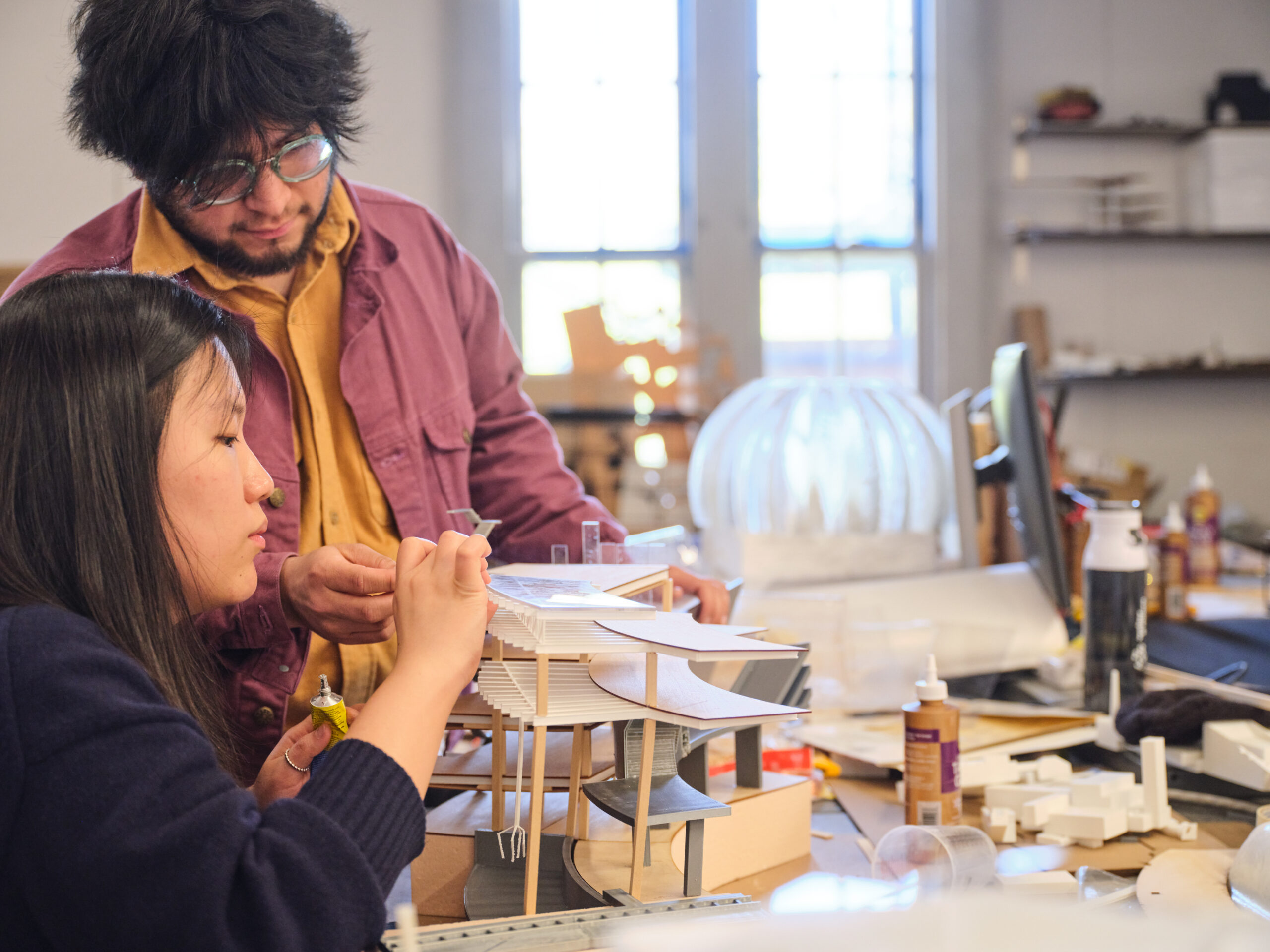
Interdisciplinary, socially engaged, and justice-driven, our tight-knit community is connected by a shared mission for transformative change. Your first three years are designed to provide basic professional preparation in architectural design, construction technology, graphic communication, and the humanistic aspects of design. Then, by purposefully selecting courses within all elective areas during your last four semesters, you can develop your own unique architectural education.
Professional Degree
The Bachelor of Architecture program is a professional program accredited by the National Architectural Accrediting Board (NAAB) requiring a minimum of five years of study. Most states require that individuals intending to become architects hold an accredited degree. These professional degrees are structured to educate those who aspire to registration and licensure to practice as architects.
Culminating Degree Project
Degree Project is the final year, two-semester sequence, in which students are required to articulate a critical architectural position, define a design problem that situates a position, and create a design proposal that tests the position. In the Fall semester, the Degree Project Research seminar is cross-linked with Humanities and Media Studies, 497B Research Writing. Together, the courses consist of directed research, reading, and writing workshops to assist students in preparing a critical project proposal within the framework of each Degree Project section’s specific themes and topics. The course is dedicated to a student-driven and faculty-led process of proposing and refining the parameters of a speculative Degree Project. The goal of the course is for students to engage in and develop research and design methodologies rooted in a historical understanding of a critical practice and in dialogue with contemporary cultural and architectural discourse. The year-long sequence of courses offer a unique opportunity for students to develop a culturally relevant architectural position or critique that emphasizes critical thinking, risk-taking, innovation and communication, as well as experimenting with various representational and design agendas. Degree Project aims to situate design research within a broader framework of cultural and theoretical concerns, including matters of social and political responsibility.
Minors and Concentrations
Undergraduate architecture students may also be interested in a Minor in Construction Management or a Concentration in Morphology as well as options combining the undergraduate degrees with various master’s degrees in planning and facilities management.
Undergraduate Architecture in Rome
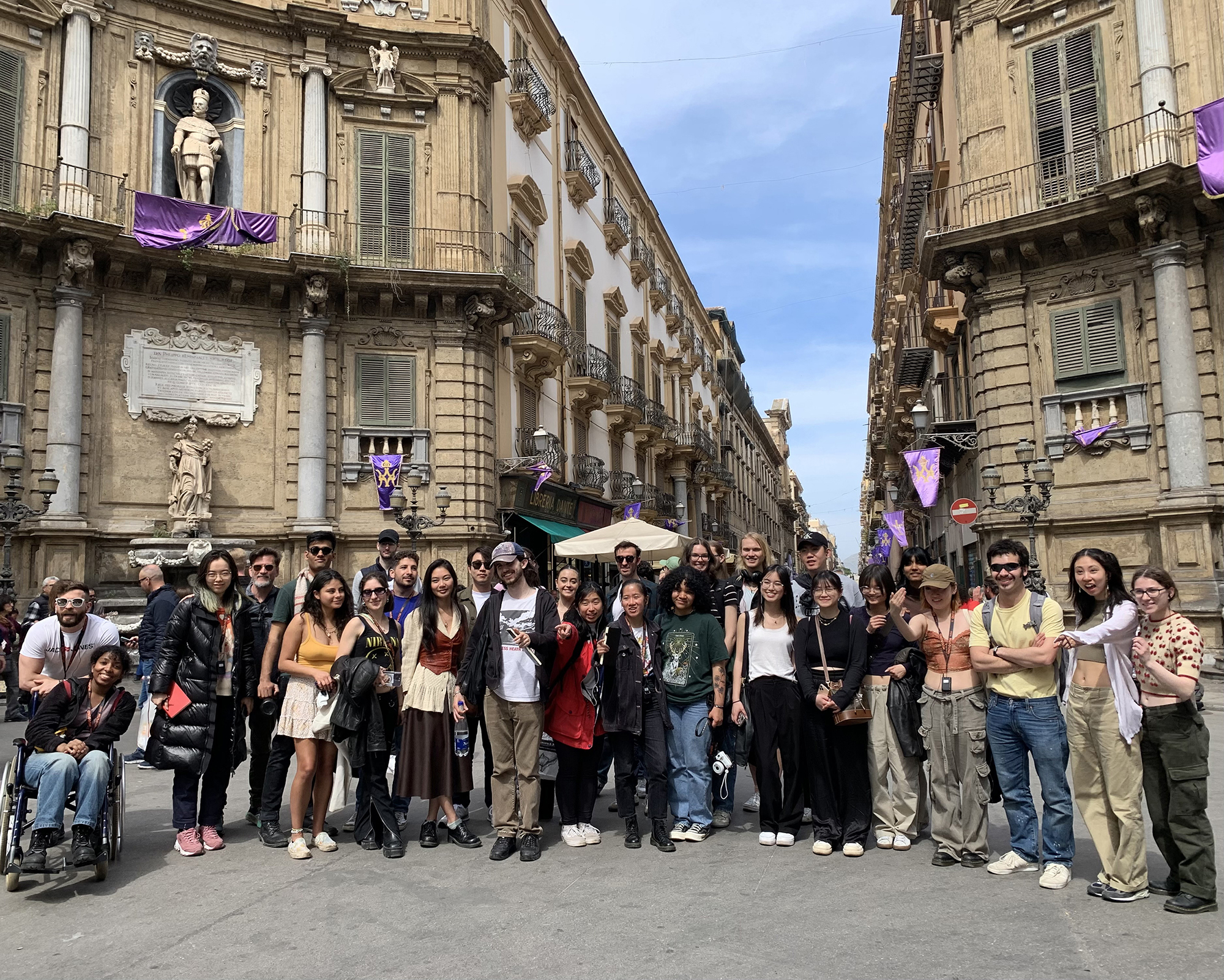
This program gives fourth-year, Undergraduate Architecture students the opportunity to live and study in Rome during their spring semester. The 18-credit hour curriculum consists of seven credits in Architectural Design and Urban Studies. The studios focus on the city’s ancient and contemporary urban context, public space, and the issues of synthesizing the old with the new. Emphasis is placed on hand drawing as a critical tool for analysis and investigation.
In the 50 years that the program has been offered, it has always been intended that the contrast between New York and Rome would stimulate discourse and inspire re-evaluation of existing preconceptions.
Summer Programs Abroad
There are many opportunities to study abroad during the summer while gaining elective credits including programs in Japan, Venice, Rome, Kigali, and Porto, among many others.
Learning Resources
We develop disciplinary fluency in our program of study and we celebrate the interdisciplinary nature of design critical to address the plurality and complexity of the environments in which we operate. Learn about resources.
Our Faculty
Pratt’s distinguished faculty of outstanding creative professionals and scholars share a common desire to develop each student’s potential and creativity to the fullest. Bringing different views, methods, and perspectives they provide a rigorous educational model in which students make and learn. See all undergraduate Architecture faculty and administrators.
-
Lawrence Blough
Professor
-
Ann Dinh
AICAD Post-Graduate Teaching Fellow
-
Deborah Gans
Professor
-
Duks Koschitz
Professor
-
Zehra Kuz
Adjunct Professor – CCE
-
Haresh Lalvani
Professor
-
Jason Lee
Associate Professor
-
Yetunde Olaiya
Adjunct Assistant Professor
-
Scott Ruff
Adjunct Associate Professor
-
Jonathan Scelsa
Professor; K-12 Center Instructor
-
Meredith TenHoor
Professor
-
Jason Vigneri-Beane
Professor
Our Alumni
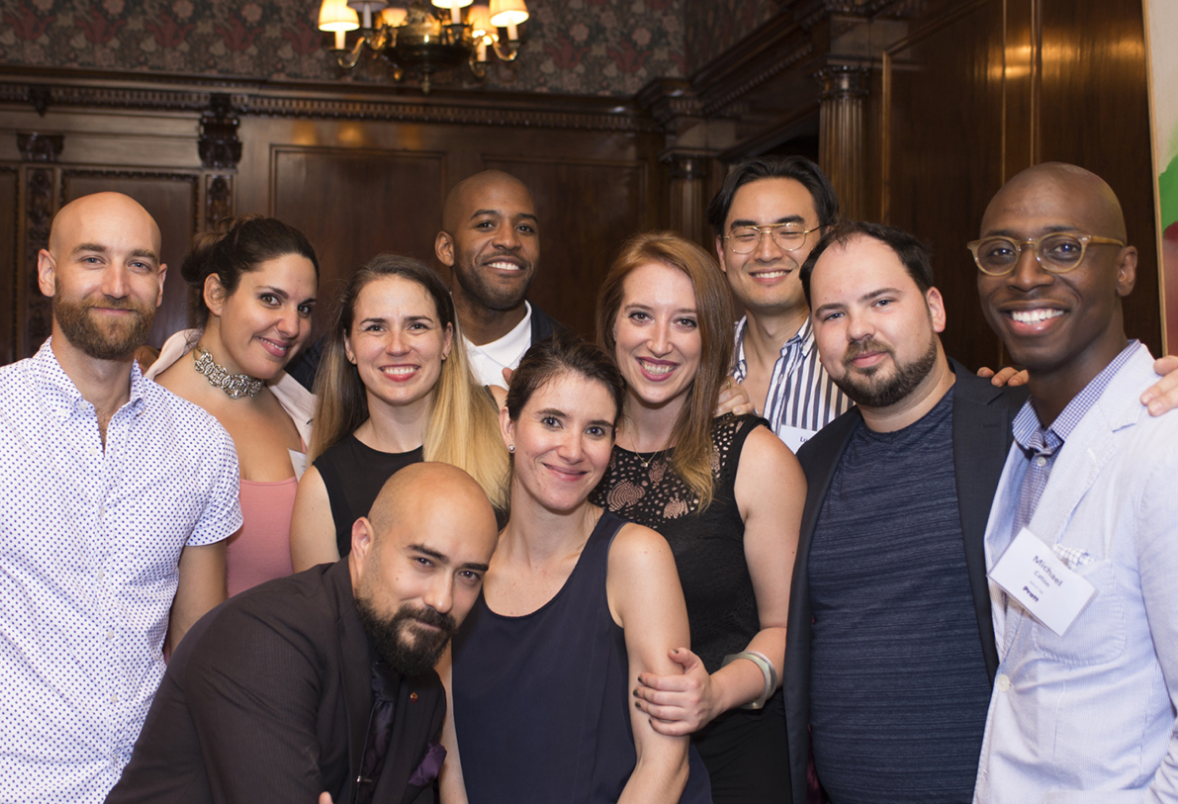
Pratt’s distinguished alums are leading thriving careers, addressing critical challenges and creating innovative work that reimagines our world, at a diverse selection of companies and institutions. They also go on to become entrepreneurs and principals leading their own studios and businesses.
Where They Work
- Pascale Sablan, President to NOMA
- Peter Zumthor, Peter Zumthor & Partner
- Molly Claypool, Automated Architecture (AUAR) Labs
- Bradley Rothenberg, nTopology
- Annabelle Selldorf, Selldorf Architects
- Rodney Leon, Rodney Leon Architect
- Carlos Zapata, Carlos Zapata Studio
- Vicky Chan, Avoid Obvious Architect
- Charles Gwathmey, Gwathmey Siegel Kaufman Architects
News Stories
Ready for More?
| HERE’S HOW TO APPLY | PORTFOLIO HELP | OUR CAMPUS & BEYOND |
|---|---|---|
| Join us at Pratt. Learn more about admissions requirements, plan your visit, talk to a counselor, and start your application. Take the next step. | Building your portfolio can be daunting. We’ll answer your questions and help you feel confident about the portfolio you submit with your application. Start building your portfolio, now. | You’ll find yourself at home at Pratt. Learn more about our residence halls, student organizations, athletics, gallery exhibitions, events, the amazing City of New York and our Brooklyn neighborhood communities. Check us out. |
